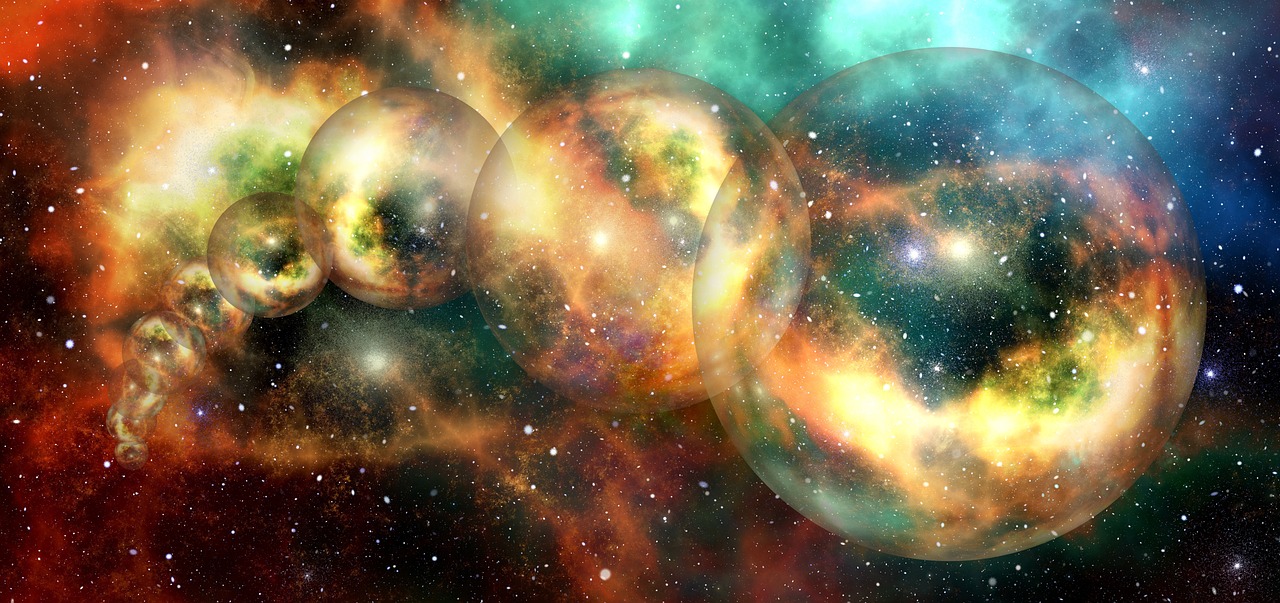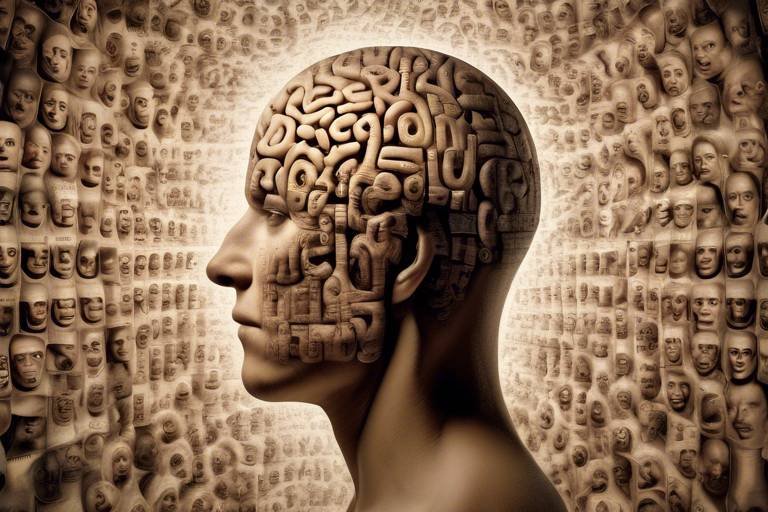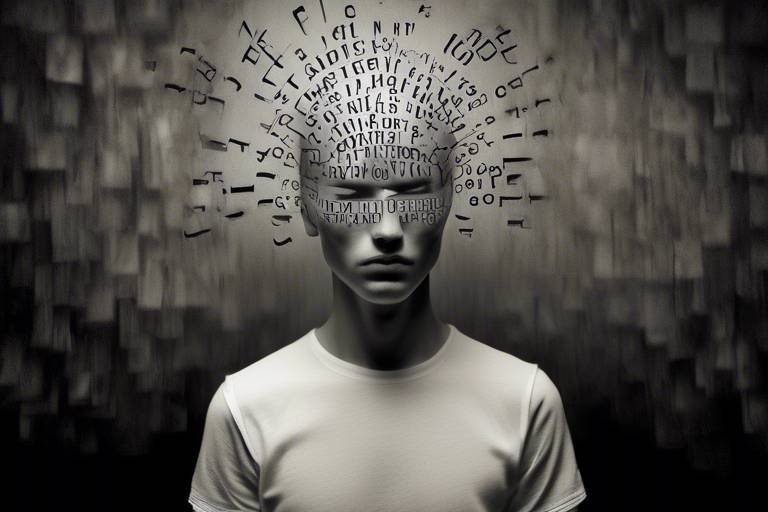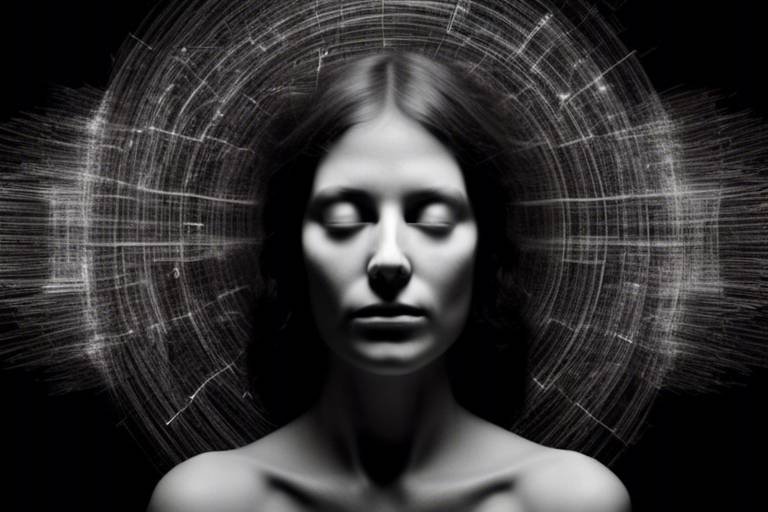Quantum Physics and Consciousness - A Happenstance?
Welcome to the fascinating world where quantum physics meets the enigmatic realm of consciousness. At first glance, these two fields might seem like oil and water—totally different and unable to mix. But what if I told you that they might actually hold the keys to understanding our very existence? Imagine standing at the edge of a cliff, gazing into the vast ocean of possibilities, where each wave represents a different theory, a different idea about how our minds and the universe interact. This article is your guide to navigating that ocean, exploring how quantum mechanics might influence our perception of reality and consciousness itself.
As we dive deeper, we'll uncover the fundamental concepts of quantum physics, such as superposition, entanglement, and the mind-bending wave-particle duality. These principles not only challenge our traditional views of the universe but also invite us to reconsider what consciousness truly is. Are we merely biological machines, or is there something more profound at play? Let's embark on this intellectual journey together and see where it leads us.
So, buckle up! Whether you're a seasoned physicist or just someone curious about the universe, there’s something here for everyone. In the following sections, we’ll explore various theories of consciousness, the potential roles of quantum mechanics in cognitive processes, and even the philosophical implications of our findings. By the end, you might just find yourself questioning everything you thought you knew about reality.

The Basics of Quantum Physics
When we dive into the fascinating world of quantum physics, we're stepping into a realm that often feels more like science fiction than science fact. At its core, quantum physics seeks to explain the behavior of matter and energy at the smallest scales, where the rules of classical physics simply do not apply. Imagine a tiny particle, like an electron, behaving like both a particle and a wave. This duality is one of the foundational concepts of quantum mechanics, known as wave-particle duality. It challenges our everyday understanding of how things should behave, leading to mind-bending implications about the nature of reality.
Another key concept in quantum physics is superposition. Picture this: a coin spinning in the air, it can be both heads and tails until it lands. Similarly, quantum particles can exist in multiple states at once until they are observed or measured. This idea flips our traditional understanding on its head, suggesting that reality itself might be more fluid than we ever imagined. But wait, there's more! Enter entanglement, another intriguing phenomenon where particles become interconnected in such a way that the state of one instantly influences the state of another, no matter the distance separating them. It’s as if they have a secret line of communication that transcends space and time.
To fully grasp these concepts, it helps to visualize them. Below is a simple table that summarizes the three fundamental concepts of quantum physics:
| Concept | Description |
|---|---|
| Wave-Particle Duality | Particles can exhibit properties of both waves and particles, depending on how they are observed. |
| Superposition | Particles can exist in multiple states simultaneously until measured. |
| Entanglement | Particles can become linked, such that the state of one affects the state of another, regardless of distance. |
These concepts are not just academic; they have profound implications for how we understand the universe and our place within it. They suggest that at a fundamental level, reality is interconnected and complex, challenging the very fabric of our understanding. As we explore the intersection of quantum physics and consciousness, it becomes crucial to grasp these foundational ideas. They serve as the stepping stones towards unraveling the mysteries of both the mind and the universe.

The Nature of Consciousness
When we dive into the realm of consciousness, we find ourselves navigating a complex and often perplexing landscape. What exactly is consciousness? Is it merely a byproduct of brain activity, or does it hold a deeper significance? These questions have puzzled philosophers, scientists, and curious minds alike for centuries. Consciousness can be described as our awareness of ourselves and our environment, encompassing thoughts, feelings, perceptions, and experiences. But the intricacies of consciousness go far beyond simple definitions.
At its core, consciousness is a multifaceted phenomenon. It can be categorized into various states, such as waking, dreaming, and altered states induced by meditation or substances. Each state offers a unique perspective on reality, challenging our understanding of what it means to be aware. For instance, during dreaming, our minds create vivid narratives that feel real, blurring the lines between imagination and reality. This leads us to ponder: if our dreams can feel so tangible, what does that say about our waking consciousness?
Furthermore, consciousness is often discussed in terms of its characteristics. It is subjective, personal, and inherently difficult to measure. Unlike physical attributes, consciousness cannot be quantified easily. This has led to the development of various theories attempting to explain its nature. Some propose that consciousness arises from complex neural networks in the brain, while others suggest it might be a fundamental aspect of the universe, akin to space and time.
One notable theory is the Integrated Information Theory (IIT), which posits that consciousness corresponds to the level of information integration within a system. In simpler terms, the more interconnected and complex a system's information is, the more conscious it becomes. This theory opens up fascinating discussions about the potential consciousness of non-human entities, such as animals, and even artificial intelligence. Could a sufficiently advanced AI possess consciousness? This question invites us to reconsider our definitions and assumptions about consciousness.
Additionally, the concept of consciousness is often intertwined with the notion of self. The self is a narrative we construct, a story that helps us understand our place in the world. This narrative is continuously shaped by our experiences, memories, and interactions. But what happens to the self during altered states of consciousness? Many individuals report feelings of unity or oneness with the universe during deep meditation or psychedelic experiences, suggesting that our sense of individuality may be more fluid than we realize.
In the pursuit of understanding consciousness, we must also consider the ongoing debates surrounding its origins. Some argue for a materialistic view, asserting that consciousness emerges from physical processes in the brain. Others advocate for dualistic perspectives, suggesting that consciousness exists independently of the physical body. This dichotomy raises profound implications for our understanding of reality and existence itself.
To summarize, the nature of consciousness is a rich tapestry woven from various threads of thought, experience, and inquiry. As we continue to explore this enigmatic phenomenon, we may find that consciousness is not just a byproduct of our biology but a fundamental aspect of our existence. The journey to understand consciousness is as much about exploring the self as it is about uncovering the mysteries of the universe.
- What is consciousness? Consciousness refers to our awareness of ourselves and our surroundings, encompassing thoughts, feelings, and perceptions.
- Can consciousness exist outside of the brain? This is a debated topic; some theories suggest consciousness may be a fundamental aspect of the universe, while others argue it arises from brain activity.
- What are the different states of consciousness? Common states include waking, dreaming, and altered states induced by meditation or substances.
- Is consciousness measurable? Consciousness is subjective and challenging to quantify, leading to various theories regarding its nature and origins.

Quantum Mechanics and the Mind
When we think about our minds, we often picture a complex network of neurons firing away, processing information, and generating thoughts. But what if I told you that there might be a deeper, more mysterious layer to our cognitive processes, one that intertwines with the principles of quantum mechanics? This idea might sound outlandish at first—after all, how can the bizarre behaviors of subatomic particles relate to our everyday thinking? Yet, as we delve deeper into this fascinating intersection, we uncover some tantalizing possibilities.
At the heart of this exploration is the concept that our consciousness might not be just a product of classical physics but could instead be influenced by quantum phenomena. Some researchers suggest that processes such as superposition and entanglement, which are fundamental to quantum mechanics, could play a role in how we think, perceive, and experience reality. Imagine your thoughts existing in multiple states at once, much like a particle that can be in two places simultaneously. This notion aligns with the idea that our minds may operate in a non-linear fashion, allowing for creativity and intuition to flourish in ways that traditional models of cognition struggle to explain.
One of the most intriguing theories comes from physicist Roger Penrose, who posits that consciousness arises from quantum processes occurring within the brain's microtubules. These tiny structures, found in the cytoskeleton of neurons, might serve as conduits for quantum information, effectively bridging the gap between the physical brain and the abstract realm of consciousness. If true, this would suggest that our thoughts are not merely the result of biochemical reactions but are also influenced by the strange and wonderful world of quantum mechanics.
Moreover, consider the implications of the observer effect in quantum mechanics, which posits that the act of observation can alter the state of a quantum system. Could it be that our conscious awareness plays a similar role in shaping our experiences? This leads us to ponder whether our thoughts and perceptions are merely reflections of an objective reality or if they actively participate in creating that reality. The idea that our minds could influence the very fabric of existence is as exhilarating as it is perplexing.
However, it's essential to approach these theories with a healthy dose of skepticism. The scientific community remains divided on the validity of linking quantum mechanics with consciousness. Critics argue that while the parallels are intriguing, they lack empirical support and that consciousness can be sufficiently explained through established neuroscience. Yet, the very act of questioning and exploring these connections fuels ongoing research and encourages interdisciplinary dialogue between physicists, neuroscientists, and philosophers.
In conclusion, the exploration of quantum mechanics and the mind opens up a realm of possibilities that challenges our understanding of consciousness. While we may not yet have conclusive evidence to support these theories, the journey of inquiry itself is a testament to human curiosity and the relentless pursuit of knowledge. As we continue to investigate this enigmatic relationship, who knows what groundbreaking discoveries await us on the horizon?
- Can quantum mechanics really explain consciousness?
While some theories suggest a connection, there is still much debate among scientists. - What is the observer effect?
The observer effect refers to changes that the act of observation can make on a quantum system. - Who is Roger Penrose?
Roger Penrose is a physicist who proposed that consciousness arises from quantum processes in the brain. - Is there empirical evidence supporting quantum consciousness?
Currently, there is limited empirical evidence, and the theories remain largely speculative.

Entanglement and Human Connection
When we think about quantum entanglement, it often feels like we’re diving into the realm of science fiction. Imagine two particles that, no matter how far apart they are, remain connected in a way that the state of one instantly influences the state of the other. This peculiar phenomenon raises fascinating questions about our own human connections. Are we, in some way, entangled with each other? Could it be that our relationships are more profound than just physical interactions?
At its core, entanglement suggests a level of interconnectedness that transcends conventional boundaries. It’s almost poetic to think that, just like those particles, our lives are intertwined in ways we may not fully understand. Consider how we often feel deep emotional bonds with friends or family, sensing their feelings even from miles away. This could be likened to a quantum connection, where our emotional states somehow resonate with one another, creating a shared experience that defies distance.
In exploring this metaphor, we can draw parallels between quantum entanglement and the human experience. Think about the moments in life when you’ve felt an inexplicable connection to someone. Perhaps you’ve experienced a sudden urge to reach out to a friend, only to find out they were going through a tough time. Such instances might not be mere coincidences; they could hint at a deeper, entangled bond that science has yet to fully unravel.
Moreover, this idea of entanglement can extend to our collective consciousness. As we navigate through life, we share experiences, emotions, and thoughts that contribute to a larger tapestry of human existence. This interconnectedness could suggest that our individual consciousnesses are not isolated but rather part of a vast, entangled network that shapes our realities. When we engage in acts of kindness or empathy, we might be tapping into this quantum-like connection, fostering a sense of unity that enhances our understanding of what it means to be human.
To further illustrate this concept, let’s consider the implications of entanglement in relationships:
| Aspect | Quantum Entanglement | Human Connection |
|---|---|---|
| Distance | Particles remain connected regardless of distance | Emotional bonds can transcend physical separation |
| Influence | Change in one particle affects the other | One person's emotions can impact another's |
| Interconnectedness | Particles are part of a larger system | Humans are part of a shared experience |
As we reflect on these ideas, it becomes clear that the concept of entanglement offers a profound lens through which to view our relationships. It encourages us to consider the invisible threads that bind us together, prompting a deeper appreciation for the connections we share. Just as particles are linked in the quantum realm, perhaps we too are part of a larger, intricate web of consciousness that shapes our interactions and experiences.
In conclusion, while quantum entanglement may seem like an abstract concept, its implications for human connection are deeply significant. It invites us to explore the mysteries of our relationships and the unseen forces that draw us together. As we continue to delve into the realms of quantum physics and consciousness, who knows what revelations await us about the nature of our existence and the bonds that tie us to one another?
- What is quantum entanglement? Quantum entanglement is a phenomenon where two particles become interconnected in such a way that the state of one particle instantly influences the state of the other, regardless of the distance between them.
- How does quantum entanglement relate to human relationships? The metaphor of entanglement suggests that human connections might be deeper than physical interactions, hinting at an emotional and psychological interconnectedness that transcends distance.
- Can our emotions influence others in a way similar to quantum entanglement? While not scientifically proven, many people believe that emotional states can resonate with others, creating a sense of shared experience and empathy.

Observer Effect and Consciousness
The observer effect in quantum mechanics is a fascinating phenomenon that suggests the act of observation itself can influence the outcome of an event. Imagine you’re watching a pot of water boil; it seems to take forever until you finally look away, and suddenly, it’s bubbling away. In the quantum realm, this idea takes on a whole new level of complexity and intrigue. When we observe quantum particles, we are not merely passive spectators; our observation alters their behavior. This raises profound questions about the nature of reality and consciousness.
At its core, the observer effect challenges our traditional understanding of how reality is constructed. It implies that consciousness is not just a byproduct of brain activity but may play an active role in shaping the universe. This notion aligns with various philosophical perspectives that suggest consciousness is fundamental to existence itself. For instance, if our awareness can influence the state of quantum particles, could it also be said to shape our experiences and perceptions of reality?
To better grasp this connection, consider the following points:
- Measurement and Reality: In quantum mechanics, particles exist in a state of superposition until measured. This means they can be in multiple states at once. The act of measurement collapses this superposition into a single state, suggesting that consciousness might be integral to determining reality.
- Consciousness as a Catalyst: Some theorists propose that consciousness acts as a catalyst for quantum events, positing that our thoughts and intentions could influence the physical world around us.
- Philosophical Ramifications: If consciousness affects reality, this leads to questions about free will and determinism. Are we merely observers in a predetermined universe, or do we have the power to shape it with our minds?
These ideas bring us to the heart of the debate surrounding the observer effect and consciousness. While some scientists embrace the notion that consciousness influences quantum events, others remain skeptical. Critics argue that the observer effect is merely a result of measurement techniques and does not imply a direct connection between consciousness and reality. They caution against overinterpreting quantum mechanics, emphasizing the need for rigorous scientific validation.
A table summarizing the key perspectives on the observer effect could look like this:
| Perspective | Description |
|---|---|
| Supportive | Consciousness plays an active role in shaping reality through observation. |
| Skeptical | Observer effect is a result of measurement, not a link to consciousness. |
| Philosophical | Questions about free will and the nature of reality arise from consciousness's influence. |
As we delve deeper into the mysteries of quantum physics and consciousness, it becomes increasingly clear that the observer effect is not just a scientific curiosity but a profound inquiry into the very nature of existence. Could it be that our awareness shapes the fabric of reality itself? This tantalizing possibility invites us to explore further, bridging the gap between science and philosophy in our quest for understanding.
In conclusion, the observer effect serves as a compelling intersection between quantum mechanics and consciousness, prompting us to reconsider our perceptions of reality. It challenges us to think about the role of the observer, not just as a passive participant but as an active creator of the universe we experience. As we continue to unravel these complex questions, we may find that the answers lie not only in the realm of physics but also within the depths of our own consciousness.
- What is the observer effect? The observer effect refers to the phenomenon where the act of observation alters the behavior of quantum particles.
- How does consciousness relate to the observer effect? Some theories suggest that consciousness may play an active role in determining the state of quantum particles during observation.
- Are there scientific debates surrounding this topic? Yes, there are ongoing debates in the scientific community regarding the implications of the observer effect and its connection to consciousness.

Scientific Critiques and Support
When it comes to the intersection of quantum physics and consciousness, opinions within the scientific community are as varied as the theories themselves. Some researchers passionately advocate for a connection between these two fields, while others remain deeply skeptical. This dichotomy raises significant questions about the validity of these claims and the implications they hold for our understanding of reality.
On one hand, proponents of the quantum consciousness theory argue that quantum phenomena, such as superposition and entanglement, could potentially explain certain aspects of consciousness that traditional neuroscience struggles to address. For instance, Roger Penrose and Stuart Hameroff have posited that quantum processes within neurons may be fundamental to the emergence of consciousness. Their theory, known as Orchestrated Objective Reduction (Orch-OR), suggests that consciousness arises from quantum computations in the brain, challenging the conventional view that consciousness is merely a byproduct of classical neural processes.
However, the scientific community has not universally embraced these ideas. Critics argue that the brain is too warm and noisy for delicate quantum states to play a significant role in cognitive processes. They contend that quantum effects, which are typically observed in isolated systems at extremely low temperatures, would be disrupted in the chaotic environment of the human brain. David Deutsch, a well-known physicist, has been vocal in his skepticism, asserting that there is currently no empirical evidence to support the idea that quantum mechanics influences consciousness.
Moreover, the lack of concrete experimental data leaves many researchers unconvinced. Theories linking quantum mechanics and consciousness often rely on speculative assumptions rather than solid scientific grounding. This leads to an ongoing debate about whether these theories can ever be tested or falsified, which is a crucial aspect of the scientific method. Without rigorous testing, how can we determine if quantum phenomena genuinely influence our minds, or if they are merely an intriguing but unfounded hypothesis?
Despite these critiques, some scientists remain optimistic about the potential for future research to bridge the gap between quantum physics and consciousness. They argue that advancements in technology, particularly in the realm of quantum computing and neuroimaging, may provide new insights into the workings of the mind. As our understanding of quantum mechanics deepens, so too may our grasp of consciousness itself.
In summary, while the dialogue surrounding quantum physics and consciousness is vibrant and thought-provoking, it is essential to approach these discussions with a critical eye. The scientific community continues to explore these complex ideas, weighing the evidence for and against the proposed connections. As research progresses, the hope is that a clearer picture will emerge, one that may redefine our understanding of both consciousness and the universe.
- What is quantum consciousness? Quantum consciousness is a theoretical framework suggesting that quantum mechanics may play a role in cognitive processes, potentially explaining aspects of consciousness that classical neuroscience cannot.
- Who are the key figures in quantum consciousness theory? Notable figures include Roger Penrose and Stuart Hameroff, who developed the Orch-OR theory, proposing that consciousness arises from quantum computations in the brain.
- What are the main criticisms of quantum consciousness? Critics argue that the brain's warm and noisy environment makes it unlikely for quantum effects to influence consciousness, and they call for more empirical evidence to support these theories.
- Is there any experimental evidence for quantum consciousness? Currently, there is limited experimental evidence supporting the idea that quantum mechanics directly influences consciousness, leading to ongoing debates within the scientific community.

Philosophical Implications
The intersection of quantum physics and consciousness opens a Pandora's box of philosophical questions that challenge our conventional understanding of reality. At the heart of this discourse lies the question: What is the nature of existence? Traditional views often separate the mind from the physical universe, but quantum mechanics suggests a more intricate relationship. Could it be that consciousness is not merely a byproduct of biological processes but rather an integral component of the universe itself?
One of the most compelling implications is the concept of free will. If consciousness can influence quantum events, does that mean we have the power to shape our reality? This idea resonates with many philosophical traditions that advocate for the concept of a participatory universe, where observers play a crucial role in the unfolding of events. Imagine a painter standing before a blank canvas; each stroke of the brush not only adds color but also creates a new reality. In this analogy, our consciousness acts as the artist, shaping the fabric of existence.
Moreover, the discussions around determinism versus indeterminism come into play. If quantum mechanics allows for multiple outcomes until an observation is made, how does this affect our understanding of fate and choice? The notion that our decisions could influence the very fabric of reality suggests a universe that is not just a stage where events unfold, but a dynamic interplay of choices and consequences. This brings to light the question of whether we are mere observers in a deterministic universe or active participants in a grand cosmic dance.
Additionally, the implications extend to our understanding of interconnectedness. The idea of entanglement in quantum physics, where particles remain connected regardless of distance, mirrors the philosophical notion of unity among all beings. This interconnectedness challenges the notion of individuality and promotes a more holistic view of existence. It invites us to consider whether our thoughts and actions resonate beyond ourselves, influencing others in ways we cannot perceive. In essence, it encourages a shift from a self-centered worldview to one that recognizes our shared existence.
To further explore these philosophical implications, we can consider the following questions:
- What does it mean to be conscious in a universe governed by quantum mechanics?
- How does our understanding of reality change when we consider the role of the observer?
- In what ways can the principles of quantum physics inform our ethical and moral frameworks?
In conclusion, the philosophical implications of quantum physics and consciousness are profound and multifaceted. They challenge us to rethink our place in the universe and the nature of reality itself. As we delve deeper into these questions, we may find that the answers not only redefine our understanding of existence but also inspire a new way of living that honors the interconnectedness of all things.
1. Can consciousness influence quantum events?
While still a topic of debate, some theories suggest that consciousness might play a role in the collapse of the quantum wave function, implying that our awareness could influence reality.
2. What is the significance of entanglement in human relationships?
Entanglement suggests a deep connection between particles, which can be metaphorically extended to human relationships, indicating that our interactions might resonate beyond immediate physical connections.
3. How do quantum mechanics and philosophy intersect?
Quantum mechanics raises questions about the nature of reality, free will, and interconnectedness, prompting philosophical inquiries that challenge traditional views of existence.

Applications in Technology
The intersection of quantum physics and consciousness is not just a theoretical playground; it has real-world implications that could revolutionize technology as we know it. Imagine a world where our understanding of consciousness could lead to advancements in artificial intelligence (AI) that mimic human thought processes more accurately. Quantum computing, with its ability to process vast amounts of data simultaneously, stands to benefit immensely from insights gained through the study of consciousness. This fusion could pave the way for machines that not only compute but also "think" in ways that are more aligned with human cognition.
One of the most exciting possibilities lies in the development of quantum neural networks. These networks could leverage quantum mechanics to enhance the processing capabilities of traditional neural networks, enabling them to solve complex problems that are currently beyond our reach. For instance, in fields like drug discovery, quantum neural networks could analyze molecular interactions at an unprecedented scale, leading to the rapid identification of effective treatments.
Moreover, the concept of quantum entanglement could have profound implications for secure communications. By utilizing entangled particles, we could achieve a level of security in data transmission that is currently unattainable. This could be a game-changer for industries that rely on sensitive information, such as finance and healthcare. The idea that two particles can remain connected, regardless of the distance between them, hints at a future where our communications are not only instantaneous but also impervious to eavesdropping.
Additionally, the principles of quantum mechanics may inspire new algorithms that enhance machine learning. These algorithms could draw parallels from how consciousness processes information, potentially leading to systems that learn and adapt more like humans do. Imagine AI that not only responds to commands but also understands context and nuance, adjusting its behavior based on past experiences.
In the realm of virtual reality (VR) and augmented reality (AR), insights from consciousness studies could enhance user experiences. By understanding how our minds perceive and interact with the world, developers could create more immersive environments that respond intuitively to user actions. This could lead to applications in education, training, and entertainment that are more engaging and effective.
To summarize, the potential applications of quantum physics and consciousness in technology are vast and varied. From quantum neural networks to secure communications and advanced AI, the possibilities are limited only by our imagination. As we continue to explore these connections, we may not only unlock new technological advancements but also gain a deeper understanding of our own consciousness.
- What is quantum computing? Quantum computing is a type of computation that utilizes the principles of quantum mechanics to process information in a fundamentally different way than classical computers.
- How does consciousness relate to technology? Understanding consciousness can lead to advancements in AI, allowing machines to mimic human thought processes and improve their learning capabilities.
- What is quantum entanglement? Quantum entanglement is a phenomenon where two particles become interconnected in such a way that the state of one instantly influences the state of the other, regardless of distance.
- Can quantum mechanics improve data security? Yes, by using entangled particles, quantum mechanics can provide a level of security in data transmission that is currently unmatched.

Future Directions in Research
As we stand at the fascinating crossroads of quantum physics and consciousness, the future of research in this area holds immense potential and promise. Scientists and philosophers alike are beginning to realize that our understanding of reality might be far more intricate than we ever imagined. With the advent of new technologies and methodologies, the exploration of how quantum mechanics could influence cognitive processes is gaining momentum. This intersection could lead to groundbreaking discoveries that challenge our current paradigms.
One of the most exciting avenues of research is the investigation of quantum cognition. This field posits that the principles of quantum mechanics can help explain certain aspects of human thought and decision-making that classical physics struggles to address. For instance, phenomena like superposition and entanglement may provide insights into how we process information and make choices, potentially leading to a deeper understanding of human behavior.
Moreover, interdisciplinary collaboration is becoming crucial in this research landscape. By merging insights from neuroscience, psychology, and quantum physics, researchers can develop more holistic models of consciousness. For instance, a recent study suggested that examining the brain's neural networks through the lens of quantum theories might reveal new dimensions of how we experience reality. This approach could pave the way for innovative therapeutic techniques in mental health, utilizing quantum principles to enhance cognitive functions.
The integration of technology is also a vital component of future research. Quantum computing, with its ability to process vast amounts of data at unprecedented speeds, could revolutionize our understanding of consciousness. Imagine using quantum algorithms to simulate complex neural networks or consciousness models that could help researchers test their theories in real-time. This could lead to significant advancements in artificial intelligence (AI), where quantum-enhanced AI systems might exhibit forms of consciousness or self-awareness that challenge our definitions of intelligence itself.
Furthermore, as we probe deeper into the fabric of reality, ethical considerations will become increasingly important. The implications of manipulating consciousness at a quantum level raise profound questions about free will, identity, and the essence of being. Future research must not only focus on the scientific aspects but also engage with the philosophical ramifications these discoveries entail. How do we ensure that our explorations respect the sanctity of human experience while pushing the boundaries of knowledge?
In conclusion, the future directions in research at the intersection of quantum physics and consciousness are as thrilling as they are complex. As we continue to unravel these mysteries, we may find ourselves rewriting the very narratives of existence and reality. The journey ahead promises to be filled with surprises, and the potential for breakthroughs that could redefine our understanding of what it means to be conscious. Are we ready to embrace the unknown?
- What is quantum cognition? Quantum cognition is a theoretical framework that applies the principles of quantum mechanics to explain cognitive processes, suggesting that human thought and decision-making may operate similarly to quantum systems.
- How could quantum physics impact artificial intelligence? Quantum physics could enhance AI by providing new algorithms and processing capabilities, potentially leading to AI systems that exhibit advanced cognitive functions or even forms of consciousness.
- What ethical considerations arise from researching quantum consciousness? Ethical considerations include the implications of manipulating consciousness, the nature of free will, and the moral responsibilities of scientists in exploring human experience.
Frequently Asked Questions
- What is quantum physics?
Quantum physics is the branch of physics that deals with the behavior of matter and energy at the smallest scales, such as atoms and subatomic particles. It introduces concepts like superposition, entanglement, and wave-particle duality, which challenge our classical understanding of the universe.
- How is consciousness defined?
Consciousness is often defined as the state of being aware of and able to think about one's own existence, thoughts, and surroundings. However, its nature and origins remain subjects of intense debate among scientists and philosophers, with various theories attempting to explain what consciousness truly is.
- Can quantum mechanics influence cognitive processes?
Some theories suggest that quantum mechanics may play a role in cognitive processes, proposing that quantum phenomena could influence how we think and perceive the world. This idea is still highly speculative and remains a topic of ongoing research and discussion.
- What is entanglement and how does it relate to human connection?
Entanglement is a quantum phenomenon where two particles become interconnected in such a way that the state of one instantly influences the state of the other, regardless of the distance separating them. Metaphorically, this concept has been used to illustrate the deep connections and relationships between individuals, suggesting that we may be more interconnected than we realize.
- What is the observer effect in quantum mechanics?
The observer effect refers to the principle that the act of observing a quantum system can alter its state. This raises fascinating questions about the role of consciousness in shaping reality and challenges our understanding of perception and existence.
- What are the criticisms of linking quantum physics with consciousness?
Critics argue that the connection between quantum physics and consciousness is largely speculative and lacks empirical evidence. They emphasize that while some theories may be intriguing, they often do not hold up under rigorous scientific scrutiny and may be more philosophical than scientific.
- What philosophical questions arise from the intersection of these fields?
The intersection of quantum physics and consciousness raises profound philosophical questions about the nature of reality, free will, and the essence of existence. It challenges our traditional views and invites us to reconsider what we know about ourselves and the universe.
- How might these insights impact technology?
Insights from theories linking quantum consciousness could potentially influence advancements in technology, particularly in fields like artificial intelligence and quantum computing. Understanding these connections may lead to innovative applications that harness the principles of quantum mechanics.
- What is the future of research in this area?
The future of research at the intersection of quantum physics and consciousness is promising, with emerging areas of study focusing on interdisciplinary collaboration. As scientists and philosophers continue to explore these complex questions, we may uncover breakthroughs that deepen our understanding of both consciousness and the universe.



















